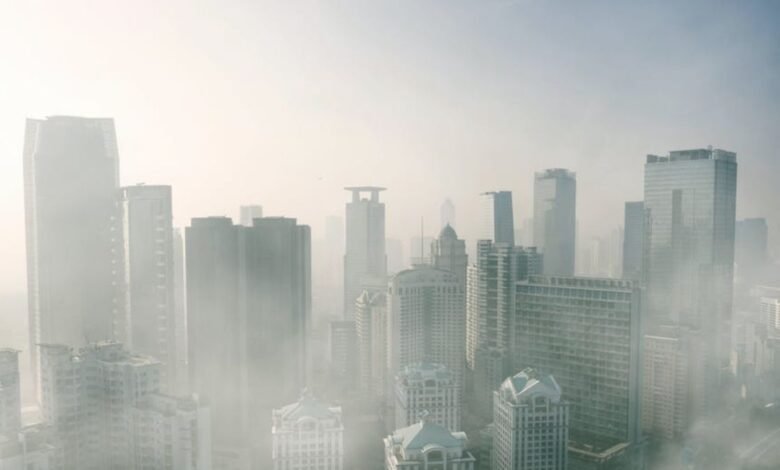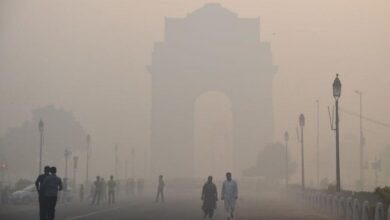Cities face rising risk of air pollution; bad air can kill

Close to 86% of the people living in cities are exposed to unhealthy particulate matter levels.
The bane of air pollution is something the world needs to take seriously. It is a known fact that the urban areas across the world are fast being pinned down by the ever expanding blanket of pouted air.
The seriousness of this phenomenon has been brought to light by a couple of recent studies, and they have stressed the magnitude of potentially life-threatening air pollution in urban areas.
The studies that have been published in The Lancet Planetary Health, throws open the real question as to how far can the cities of the word survive the onslaught of polluted air.
2.5 bn people living in cities under threat
US-based research teams have found that close to 86 percent of the people residing in urban centres across the globe are exposed to unhealthy particulate matter levels. This means that close to 2.5 billion people around the world are under threat.
It has been calculated that an estimated 1.8 million excess deaths happened in cities globally during the year 2019. In addition to that, it was found that NO2 (nitrogen dioxide gas) pollution had led to 2 million asthma cases among children worldwide during the year. Two in three of these cases had been diagnosed in the world’s urban areas.
What the studies point at is the need to improve urban air quality and reduce the widespread dependence on fossil fuels in the cities and around them. Climate breakdown risks call for mitigation, and thus saving children from the ill effects of air pollution.
Need to decarbonise the cities
It has also been found that there is an imperative need to decarbonise the cities around the world. Evidence has proved that decarbonising the environment has led to improvement in health conditions, it needs to be noted.
The world’s health and climate targets would see successful management inly through the improvement of air quality. Though the cities around the world have their own agenda towards cutting down on pollution, there also needs to be a common focus on how to significantly bring down combustion of fossil fuels.
The urban centres need to consider it a must that no burning of stuff in and around them is a policy. Such a measure can be made possible only by halting the use of petrol and diesel fuel in vehicles, stopping the use of fossil fuels at homes and also decarbonising the electricity grids.







